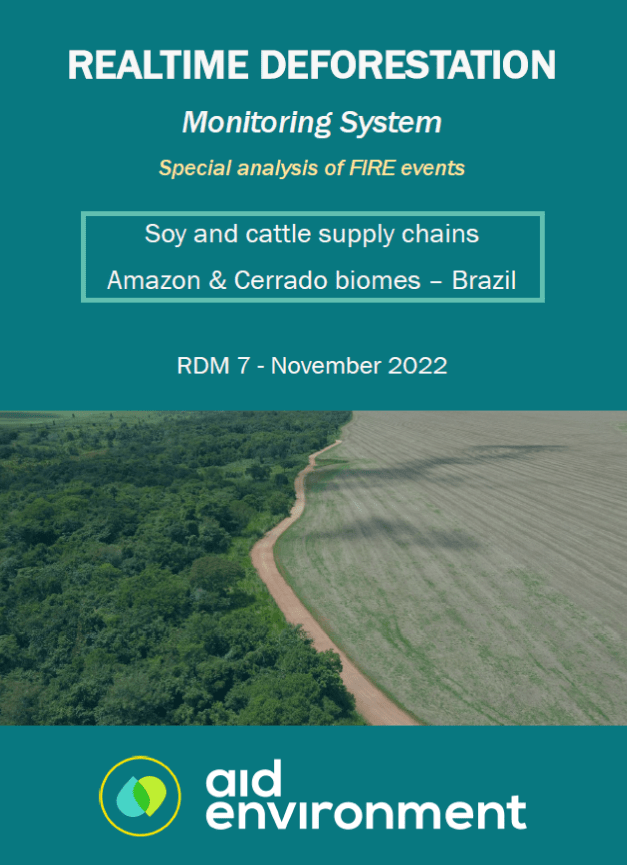Realtime Deforestation Monitoring Report (RDM 7) – November 2022


AidEnvironment’s RDM 7 report links recent fire clearance of 40,937 hectares in the Amazon and Cerrado biomes in Brazil to cattle and soy production.
Covering deforestation and fire events that occurred between June and October 2022, the report highlights ten new cases potentially connecting recent burned areas to large soy traders – ADM, ALZ Grãos, Bunge, Cargill, LDC, and Viterra – and meatpackers – JBS, Marfrig, and Minerva. Two of the cases included show direct links to two of the largest soy producers in Brazil: SLC Agrícola and InSolo.
The alarming amount of burned areas reported has largely taken place in areas classified as ‘extremely high’ priority for biodiversity conservation and/or in areas declared as Legal or Permanent Reserves, which constitute mandatory preservation zones within properties according to the Brazilian Forest Code.
RDM reports are developed to support a wide range of actors – commodity producers and traders, financial sector stakeholders, and civil society – in taking evidence-based action towards real-time deforestation events. AidEnvironment publishes RDM reports monthly with support from EU LIFE Program and the European Climate Foundation.
Realtime Deforestation Monitoring - November 2022
The RDM reports aim to:
- Raise awareness on recent deforestation and fire events linked to global commodities’ supply chains
- Engage commodity producers and traders on real-time deforestation events, and urge them to respond — especially those with commitments to halt deforestation in their supply chains
- Support stakeholders in the financial sector and civil society with granular data needed in their due diligence and engagement with companies
- Increase transparency in commodity sectors, particularly on companies’ no-deforestation commitments and how this is implemented on the ground.
